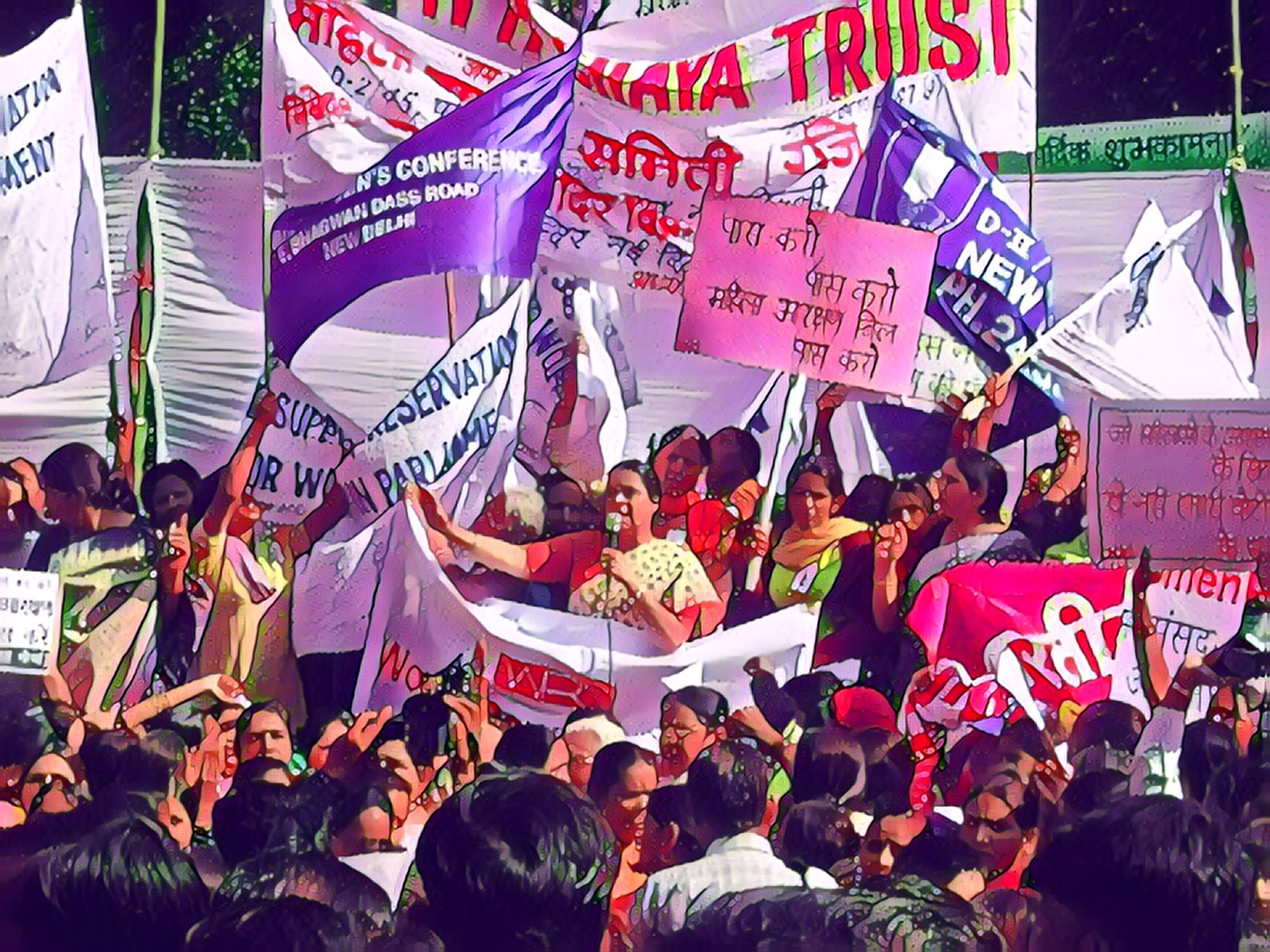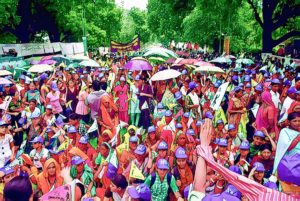It is remarkable to look back to India’s independence struggle and the heights that we have achieved since our independence from British Raj. But at the same time, it is impossible to invisibilise the role that women have played in our national struggle and the discrimination they have faced since then. When India achieved independence and declared itself a proud democratic country, the gap between male and female representation was wide and apparent. Since that year, women have been sidelined when it comes to positions of power and it is just this year, 72 years into India being a proud democratic country, we finally achieved the highest number of female MPs. From the first-ever election when only 5% of the House consisted of women, this number has now increased to 14%. Despite the rise, the term ‘political participation’ encompasses not just the ‘right to vote’, but also means participation in; decision-making processes, activism, voice in political consciousness and the right to be physically present while policies are being addressed by the other members of the House. And though women have been freely granted the right to vote, they are still forced to be absent in the other aspects that make political participation.
To combat gender inequality in other processes of political participation, the Indian Government introduced reservations in local governments. And though we see that women were allowed to be the head of Panchayats, their circle of male advisors would more often than not, make decisions because they witnessed the local community problems, while the women were explained these problems.
To further spread light on low female representation and to create a political space where women could come out and talk about their issues without feeling dismissed or secondary, the Women’s Reservation Bill was introduced. An alliance of women who attended the United Nations 1st Global Conference on Women in Nairobi, brought the agenda back to India and decided to fight for 33% reservation. The aim of the Bill is to demand representation for women in the Parliament to show progression towards a more equitable and inclusive system of governance for India, but also to have fair representation when it comes to policy making, specially when the policies are made on and for women. Considering women represent half the population of every country in the world, the representation in national parliaments on average is only 18%.
It is baffling to realize that out of all the women who actually complete their schooling or further studies, only 27% are actually employed. And even when they perform twice as hard, they are still paid lesser than their male colleagues. This evident wage gap and gender discrimination is what hinders women’s participation in politics. Instead of representation being for the people, it becomes party politics and representation of different power-structures. And so, it is equally baffling to think that Centre for Social Research is still fighting to table the Women’s Reservation Bill that was first introduced in 1996.
So while we celebrate our freedom from discrimination, colonization and violence, we conveniently forget that if we can create equal opportunities, then women can get the same education, do the same work, fight the same election, and finally have equitable representation in India. What India needs is consciousness and awareness of the fact that there the potential of one is lesser than the potential of two. For nation building and for a gender-just society, it is essential that we start treating the genders as equal, as potential leaders, potential workers, as having equal potential.






